The healthcare industry is changing fast, thanks to artificial intelligence. This tech does more than just automate tasks. It makes patient care better, helps doctors make accurate diagnoses, and makes clinical work smoother. AI is making a big impact, from telemedicine to personalized medicine, changing how we get healthcare.
Healthcare tech is growing fast, and AI is leading the way. It’s helping to make patients healthier, save money, and improve care quality. AI can look through lots of data, find patterns, and help doctors make better diagnoses.
We’re diving into how AI is changing healthcare for the better. We’ll look at how tech is improving patient care. We aim to show how AI is transforming healthcare and making it better for everyone.
Key Takeaways
- Artificial intelligence in healthcare is transforming the way healthcare services are delivered
- Healthcare technology is advancing rapidly, with AI at the forefront of this change
- AI can improve patient outcomes, reduce costs, and enhance the overall quality of care
- Artificial intelligence in healthcare can analyze large amounts of data and make more accurate diagnoses
- Healthcare technology has the power to change how we get healthcare
- AI is becoming more common in healthcare, from telemedicine to personalized medicine
Understanding Artificial Intelligence in Healthcare Today
Exploring AI in healthcare today shows its big role and how it can change the field. AI applications in healthcare help doctors and hospitals use big data better. This leads to better care and more efficient work.
At the heart of AI in healthcare are Healthcare analytics. They help gather and analyze data from many places. This data helps create predictive models. These models help doctors make better choices and improve patient care.
Some main benefits of AI in healthcare are:
- Improved patient engagement through personalized treatment plans
- Enhanced decision-making capabilities for healthcare providers
- More efficient operational management, reducing costs and streamlining processes
But, using AI in healthcare also brings challenges. We must make sure data privacy is kept safe and follow rules. As we move forward with AI in healthcare, solving these problems is key. We need to focus on keeping patients safe and cared for.
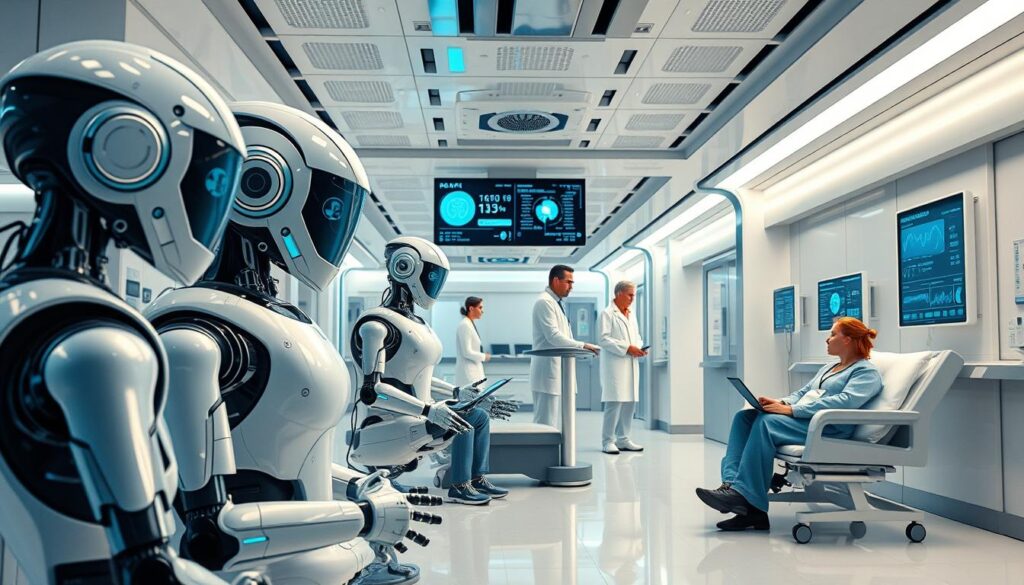
Revolutionary Applications Reshaping Patient Care
The healthcare industry is changing fast, thanks to Medical AI solutions. These new tools help doctors give better care by making diagnoses more accurate and treatments more effective. AI in medical imaging is a big help, making it easier to spot diseases early.
AI is also changing how we look at patient data. It helps doctors understand what each patient needs, making care more personal. This leads to better health outcomes and makes healthcare work more smoothly, saving money and time.
Some of the key benefits of these revolutionary applications include:
- Improved diagnostic accuracy
- Enhanced patient engagement and empowerment
- Streamlined clinical workflows and reduced costs
- Personalized treatment plans and care pathways
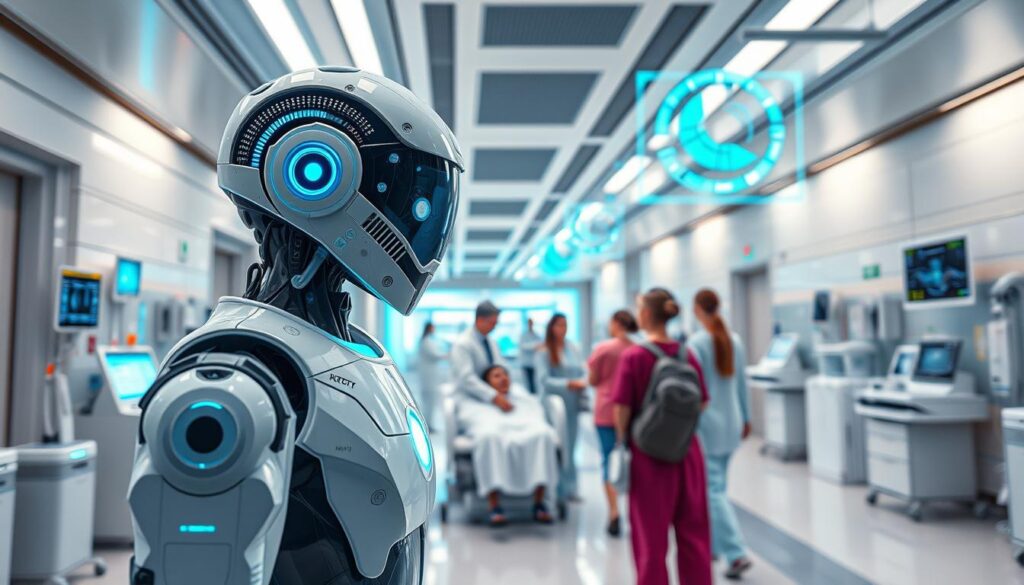
As we keep exploring Medical AI solutions, AI in medical imaging, and Healthcare data analysis, it’s clear they’re key to the future of patient care. By using these technologies, we can make healthcare better, more efficient, and focused on the patient. This will lead to better health outcomes and higher quality care for everyone.
Advancing Towards a Smart Healthcare Future
Looking ahead, AI-driven healthcare innovations will be key in shaping healthcare. These technologies will change healthcare in many ways, from preventing diseases to managing treatments. By using artificial intelligence in healthcare, we can make healthcare more personal, accessible, and effective.
AI can change patient care in big ways. It can predict diseases, monitor patients remotely, and create personalized treatment plans. AI analyzes huge amounts of data to find patterns and trends. This helps doctors diagnose diseases earlier and treat them more effectively.
We’re excited about the future of AI in healthcare. It promises a smarter healthcare system that meets patient needs better and works more efficiently. With these technologies, we can change how healthcare is delivered and experienced. This will improve the lives of patients everywhere.
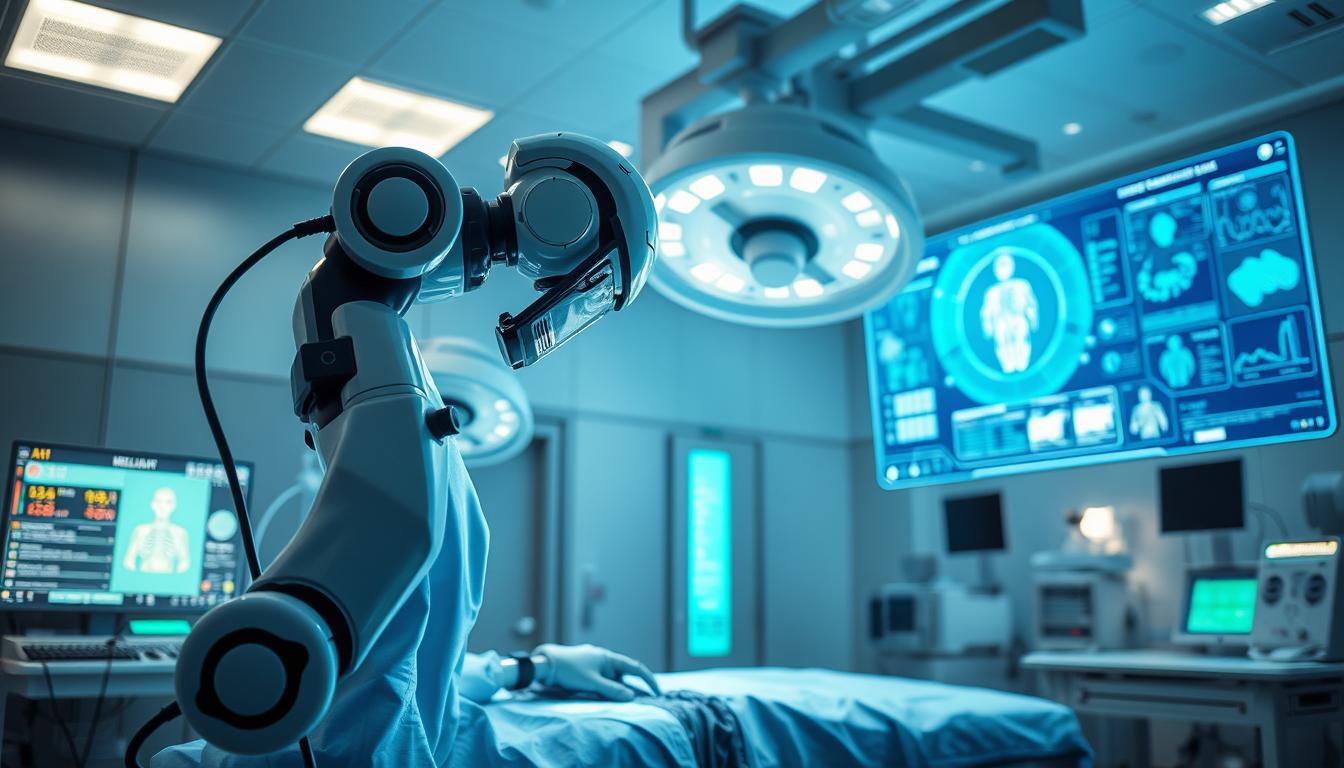
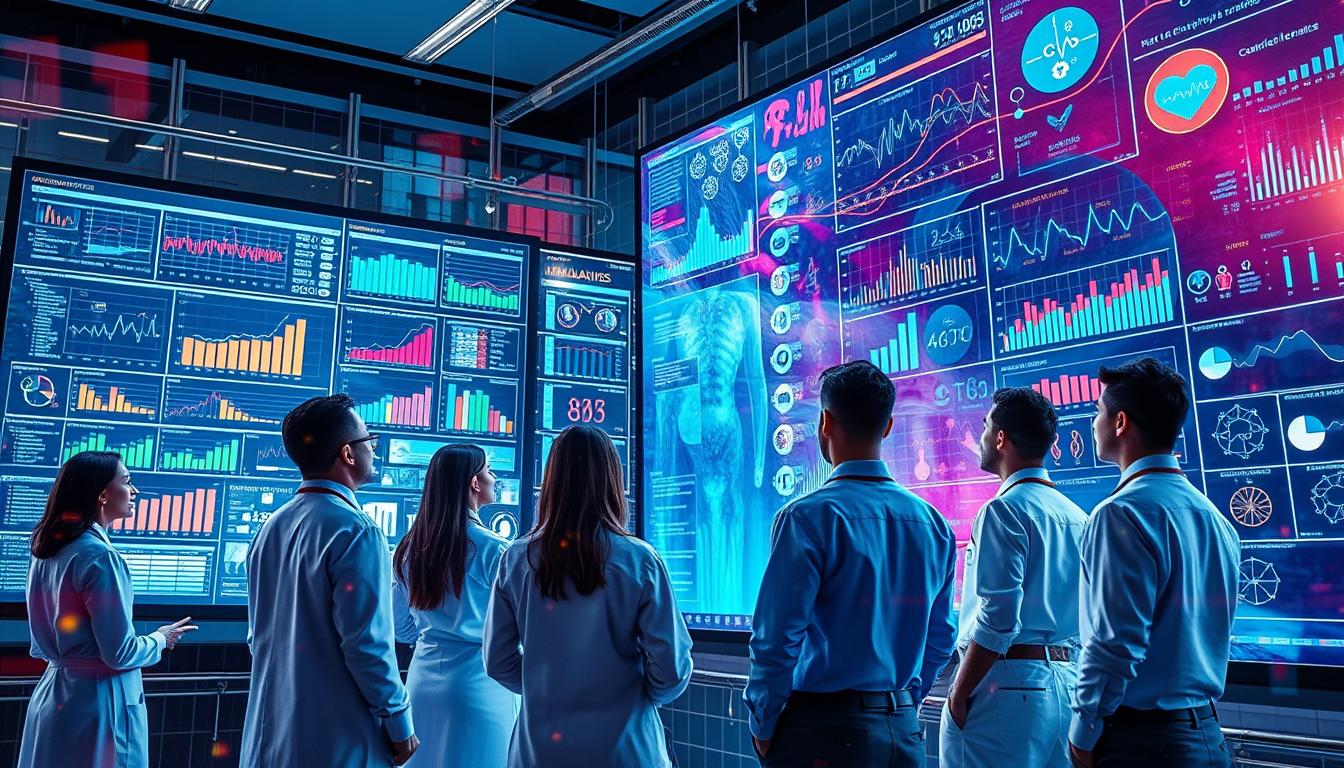
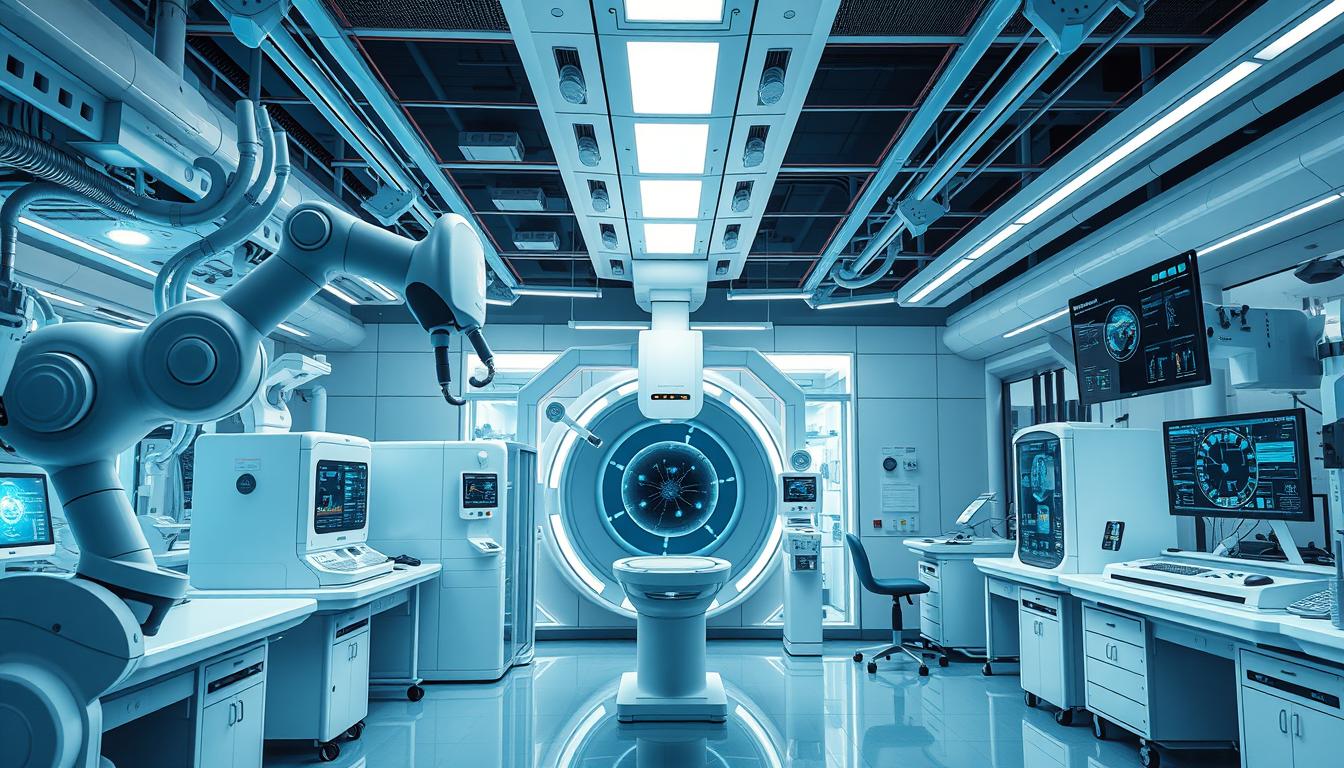
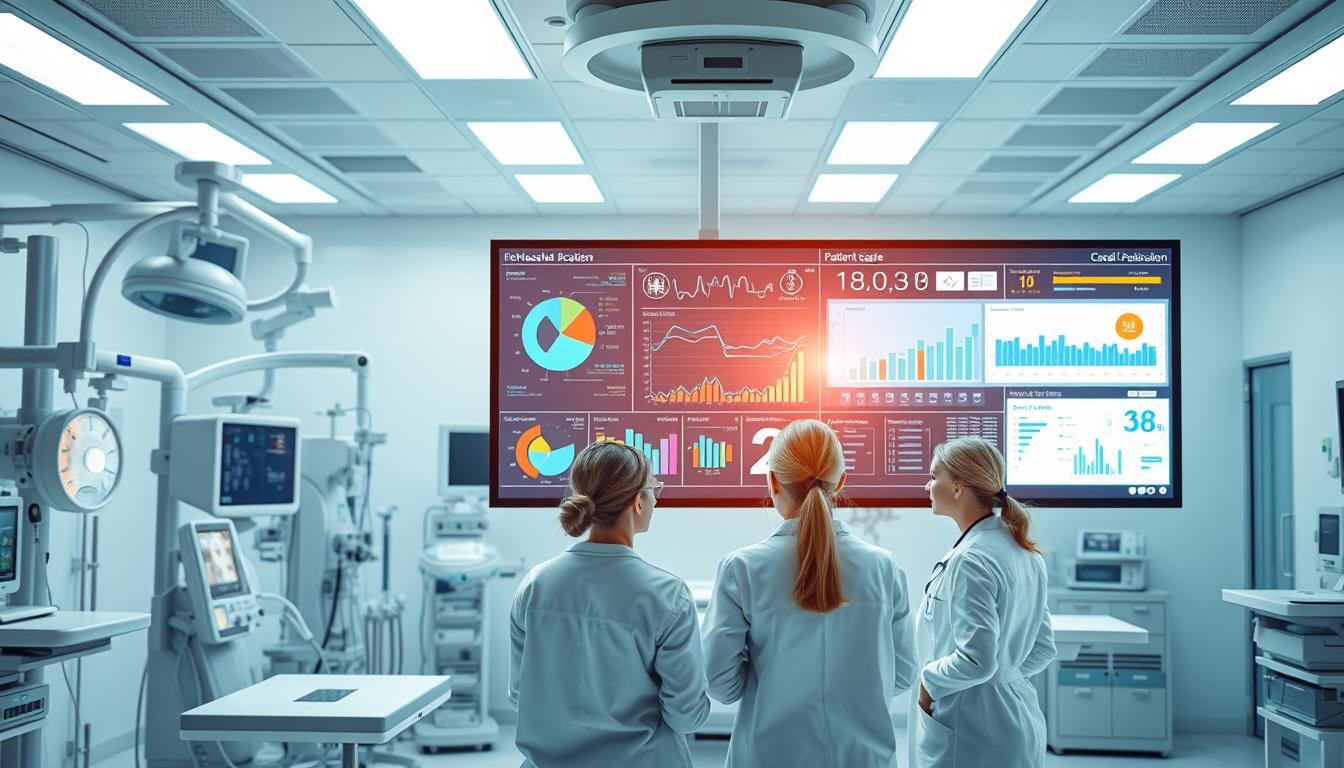
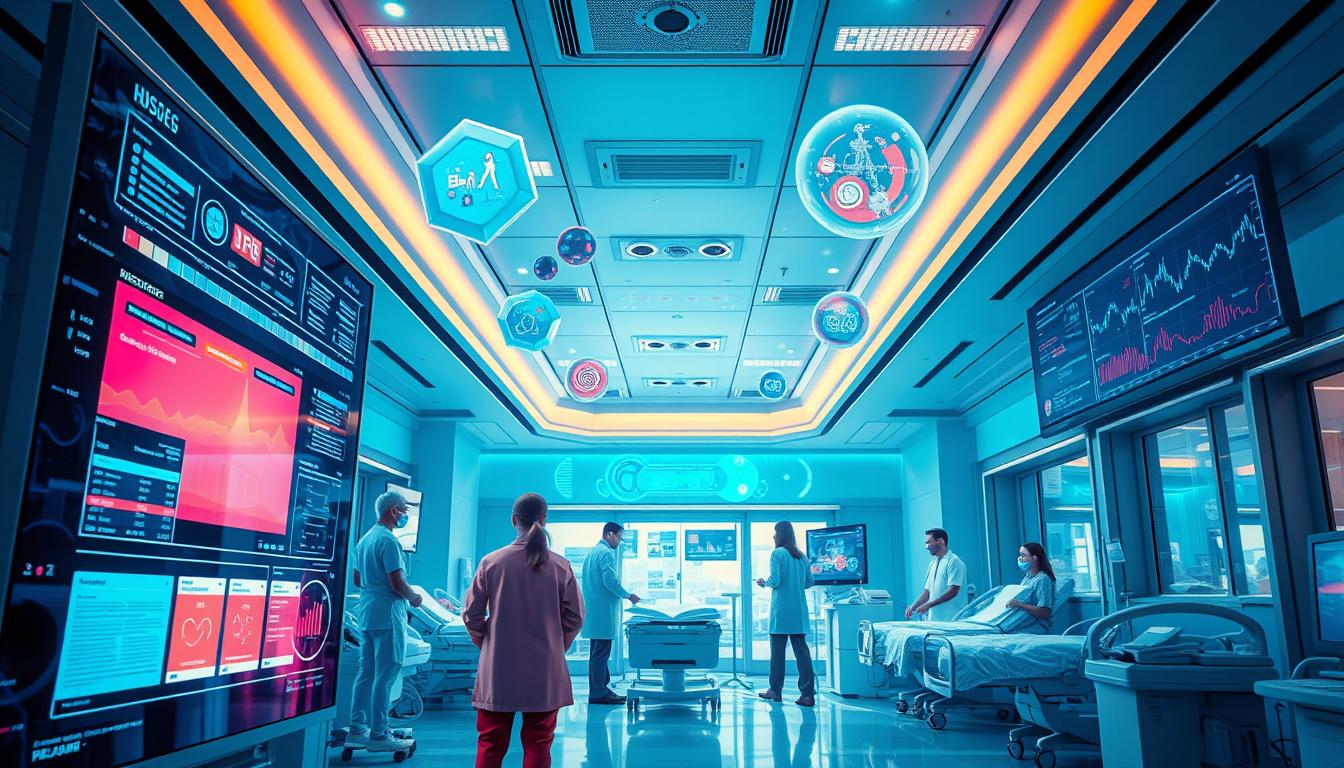
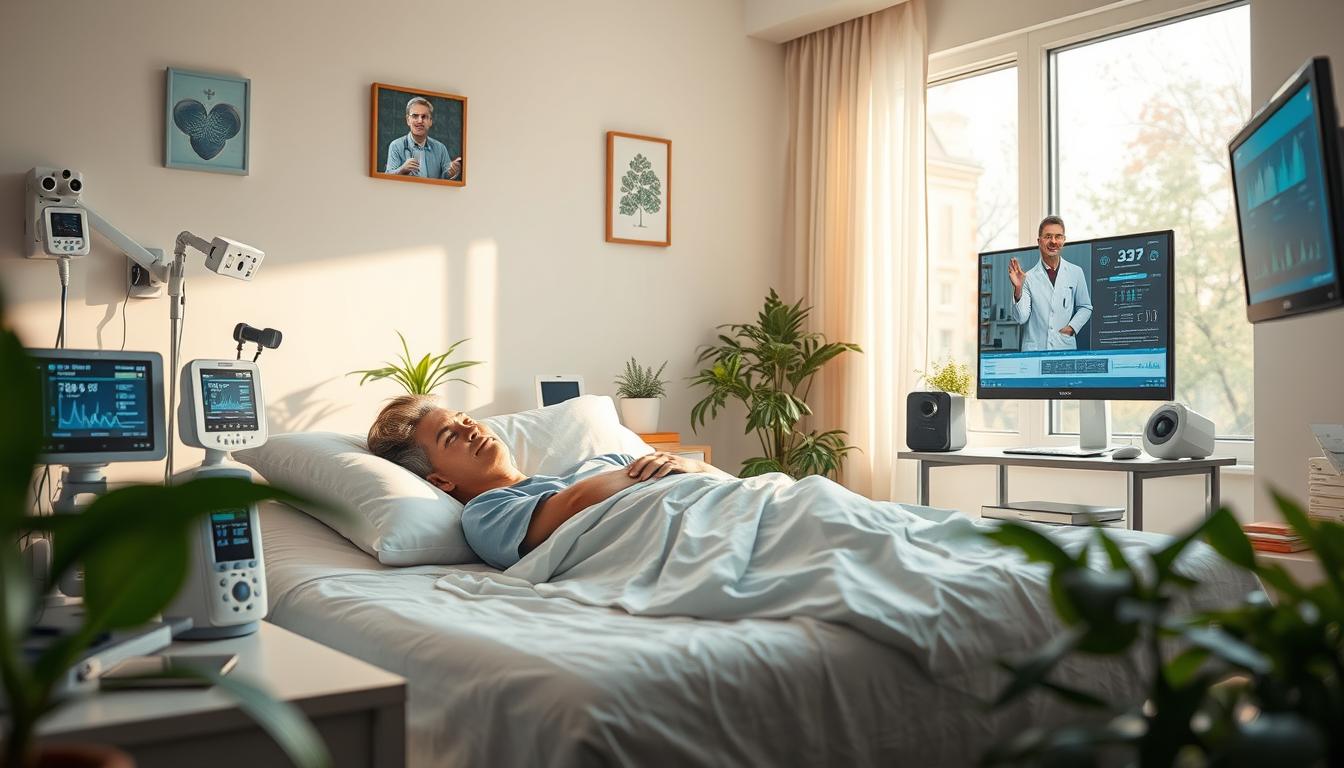
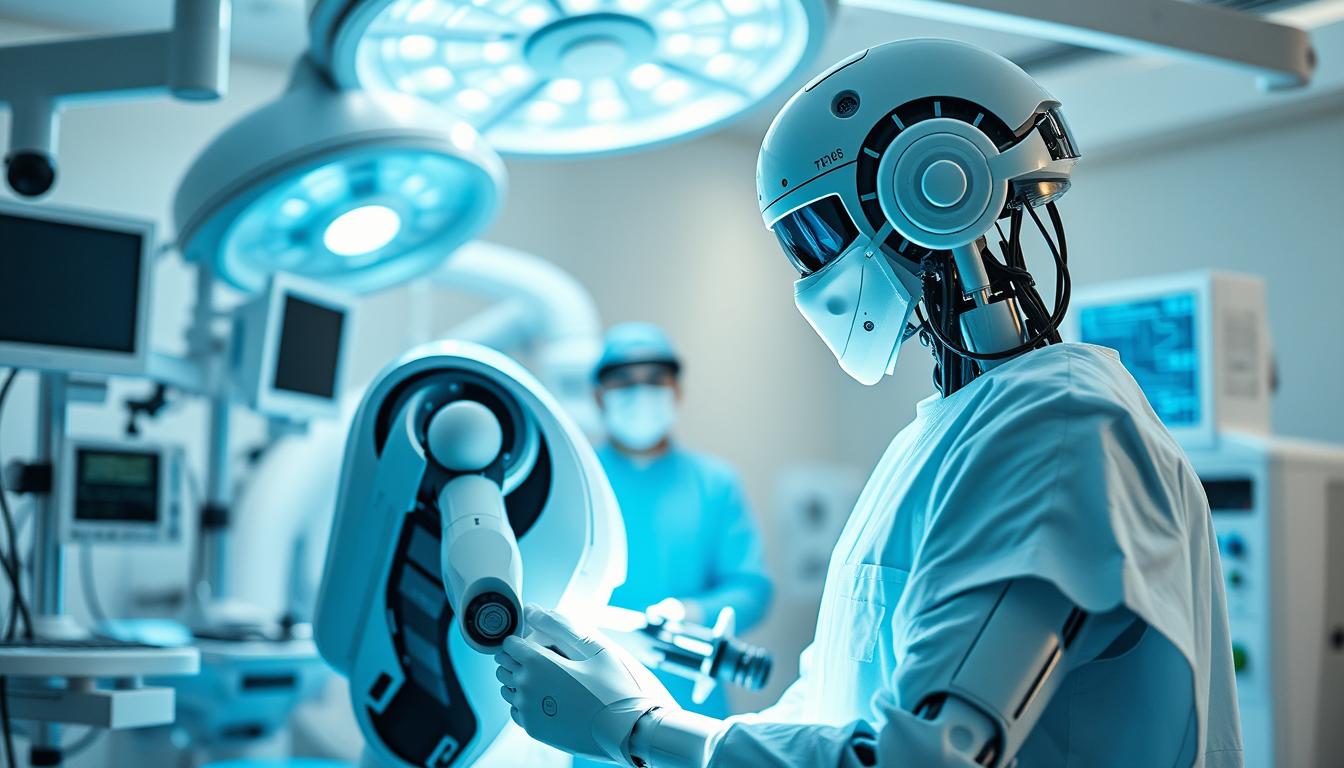
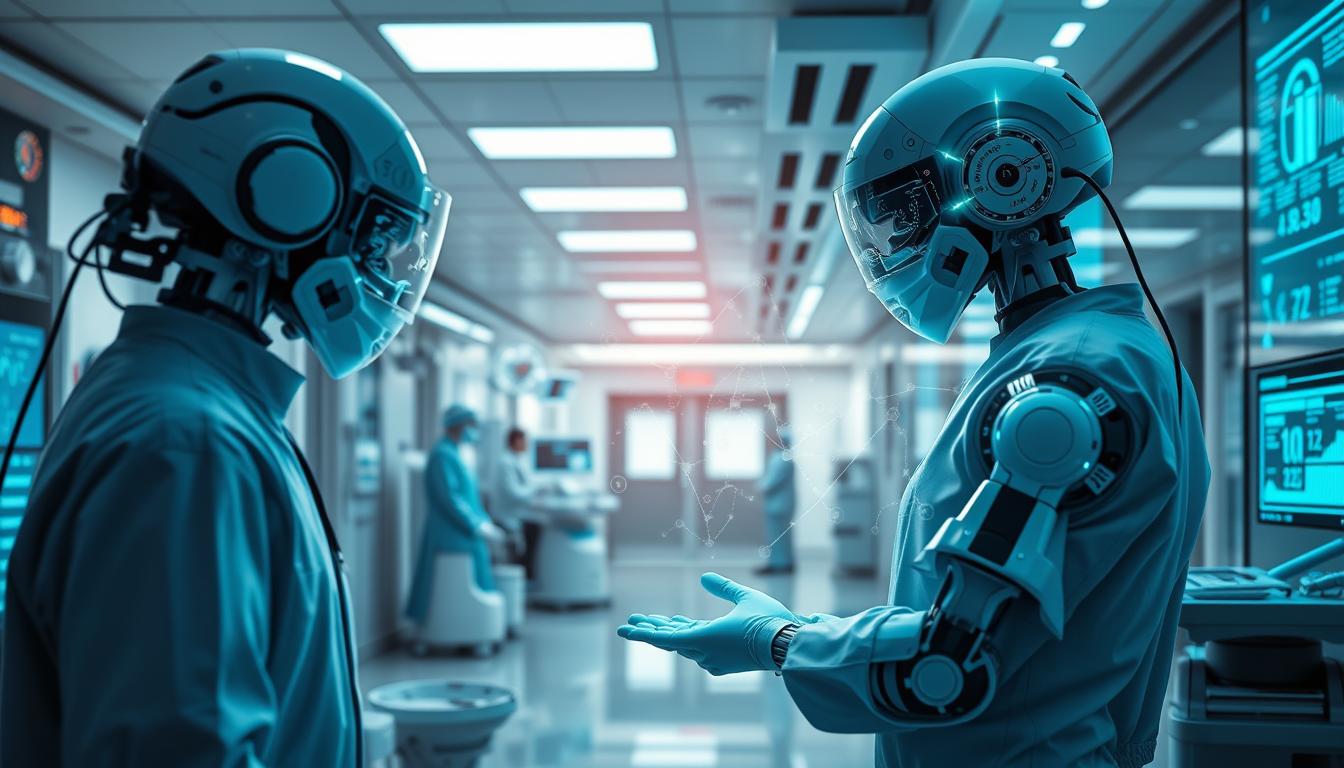

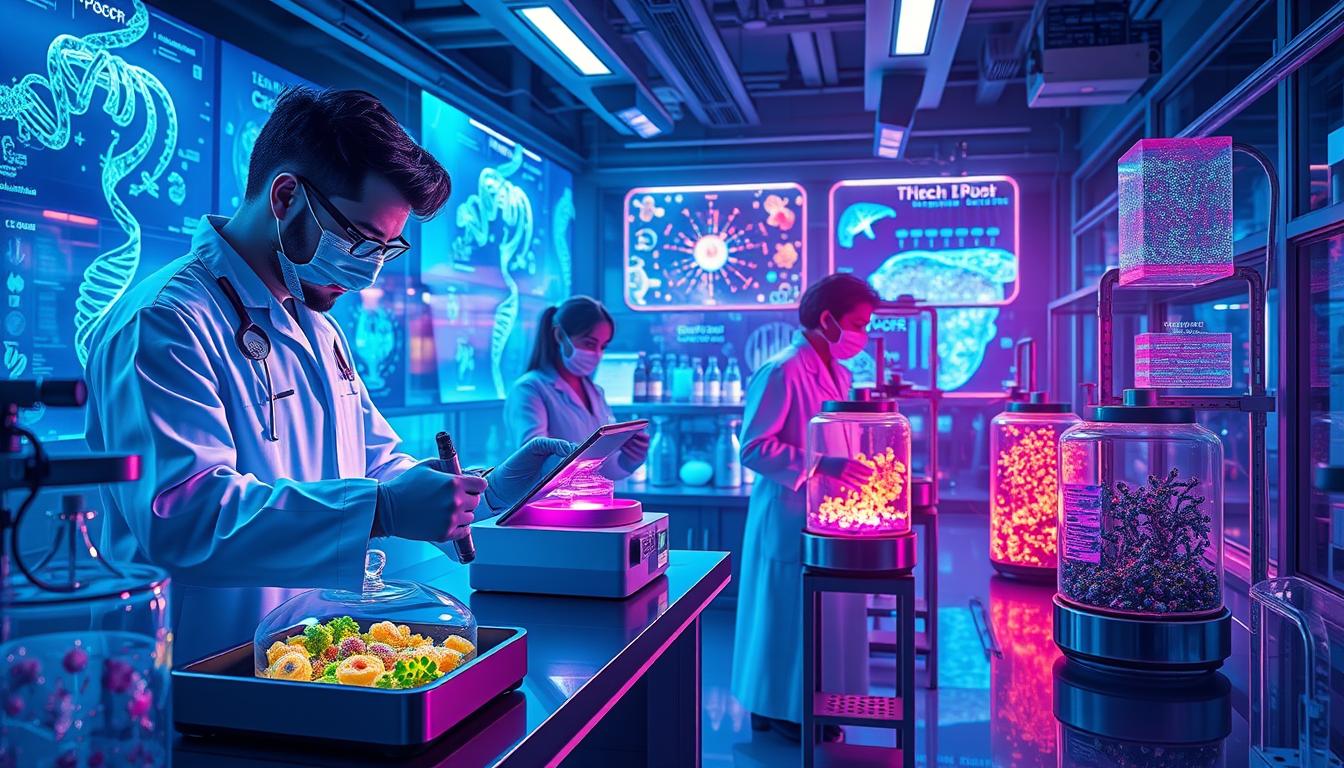

Leave a Reply